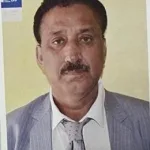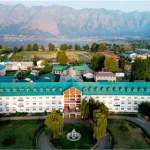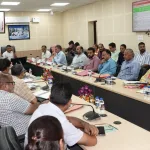Terrorist attacks are highly responsive to funding availability, and financial counter-terrorism can therefore be effective in reducing terrorism casualties, according to research conducted by Nicola Limodio, Assistant Professor of Finance at Bocconi University Visiting Fellow at the Economics Department and the Julis-Rabinowitz Center for Public Policy and Finance at Princeton University.
Without destroying the war economy in Kashmir, bringing peace to the troubled Indian state will remain a pipedream. Former Commandant of the BSF and researcher N S Jamwal estimates that Pakistan spends around $5 million annually (Rs 24 crore) to sustain militancy in Kashmir while India’s expenditure on counter-insurgency operations (CI-OPS) is around $1.46 billion annually (Rs. 730 crores). These figures are an indication of how every dollar spent on terrorist activities necessitates a financial commitment, several orders of magnitude on counter-intelligence and physical expenditures in the target country. He is of the view that financing terrorism in J&K costs no more than US $70-80 million annually i.e., Rs 400-500 crore.
The need and importance for blocking finances to terrorist organizations were outlined and emphasized by Prime Minister Narendra Modi and the Home Minster recently while addressing a conference ‘No Money for Terror’ (NMFT) Ministerial Conference on Counter-Terrorism Financing’ in New Delhi recently. The two-day conference which was organised on 18th-19th November was a unique platform for participating nations and organisations to deliberate on the effectiveness of the current international regime on Counter Terrorism Financing and the steps required to address emerging challenges.
It was concluded in the conference that countering terrorism financing is an essential part of the global fight against the terror threat. As terrorists and terror groups continue to raise money with the use of various means, countries must make it a priority to understand the risks they face from terrorist financing and develop a policy response to all aspects of it.
Dark face of terror
Modi recalled when the nation saw the dark face of terror long before the world took serious note of it. He added that even though thousands of precious lives were lost, India fought terrorism bravely. He said that the long-term impact of terrorism is particularly hard on the poor and on the local economy. “Be it tourism or trade, nobody likes an area that is constantly under threat”, Modi remarked. He further added that the livelihoods of people are snatched away as a result of terrorism. He pointed out that it is all the more important that we strike at the root of terror financing. “There is no good terrorism and bad terrorism. It is an attack on humanity, freedom and civilisation. It knows no boundaries”, the Prime Minister emphasised, only a uniform, unified and zero-tolerance approach can defeat terrorism.
But there is a marked difference between fighting a terrorist and fighting terrorism, as Modi also acknowledged. A terrorist may be neutralised with weapons and immediate tactical responses but these tactical gains will soon be lost without a larger strategy aimed at hurting their finances. “A terrorist is an individual but terrorism is about a network of individuals.” We must pursue terrorists, break their support networks and hit their finances for our citizens to be safe.
Cyber terrorism
The infrastructure used for cyber terrorism and online radicalisation is distributed while some entities also train the terrorists with weapons from remote locations as well as online resources. Communications, travel, logistics – there are many links in the chain in different countries. Terrorists should not be allowed to misuse differences in legal principles, procedures and processes in different countries. This can be prevented through deeper coordination and understanding between governments. Joint operations, intelligence coordination and extradition help the fight against terror.
As scholar and author Sushant Sareen have said in the context of Jammu and Kashmir that on one hand thousands of people have died, families and properties destroyed, and an entire society traumatised, the one set of people who have prospered beyond their wildest imagination is the separatist mafia. The huge fortunes built by separatists and terrorists in Kashmir are one of the worst-kept secrets in Kashmir. Over the years, Kashmir has been transformed into a war economy, which needs to be dismantled.
India Today sting operation
The trigger for the policy change appears to have been the remarkable sting operation carried out by intrepid reporters of India Today TV who exposed the shenanigans of the merchants of death in the Valley. The outcry after the expose probably gave the government the justification it needed for strangulating the funding of the separatists and terrorists.
In fact, among the most interesting aspects of the India Today sting operation was that the separatists who were exposed didn’t seem at all surprised or suspicious that they were being offered money by middlemen from outside the state to provide protection for their operations and even create disturbances to further their interests. If anything, the terror financiers saw they are dealing with these reporters who were impersonating middlemen from mainland India as nothing out of the ordinary, almost as if it was business as usual. Clearly, without busting the money laundering networks in cities like Delhi, Chandigarh, Kolkata, Mumbai etc. the entire NIA operation will not change anything at all. A few men may get arrested and face trial but it will be business as usual within a matter of weeks and months.
According to Jamwal, the militancy in J&K which originally started as a domestic movement has acquired transnational linkages since 1992-93. Save a small percentage of funds made through collections and donations made in the Valley, 90 per cent of the funding is from other countries. It has been recorded that external funding is of a much higher magnitude than funding coming from domestic sources. Estimates indicate that between US $1,00,000-200,000 has been raised by militant outfits, the diaspora and other Kashmiri groups.
Drug profits
Arun Kumar, in his book on Black Economy in India, says drug profits have been used to finance terrorism in the South, the North-East, Punjab and Kashmir. Pakistan’s involvement in Narco-Terrorism dates back to the era of Soviet intervention in Afghanistan. President Zia’s involvement in the narcotics trade is an open secret and he diverted some proceeds of this income towards funding the Kashmir ‘Jehad’ which continued even after his death. Narcotic smugglers based in Pakistan and controlled by ISI are reported to have earnings of over US $ 2.5 billion. According to a UNDP report, Pakistan’s heroin industry is estimated to have a turnover of US $ 74 billion.
Extortion has emerged as a major source of terrorist funding. Police and Intelligence agencies believe that most businessmen, shopkeepers, government employees, contractors, especially those dealing in timber and persons with the sound financial background are easy targets. They have bought peace by coughing up, as and when extortion demands are made. During 1990-95, Rs. 7.30 crore was looted by terrorists to fund their activities. Needless to say, estimates of extortion funds are impossible but could run into several crores of rupees per year. This system has been in existence for a long time in India and other Asian countries. In India, it is known as hawala, in Pakistan as hundi, in China fei Qian (flying money), and the Philippines as black market peso exchange. 23 It is one of the important methods of terrorist funding in Kashmir, and is known as the underground or parallel-banking channel.
Hawala system
Hawala is a system wherein with nothing more than a telephone and a fax machine, money can be transferred anywhere with no questions asked, no names used and no trail left for law enforcement. Hawala funding is done through a network of dealers which extends from different countries to Delhi, Mumbai and other places in India. Many of these Hawala dealers have begun wholesale/retail businesses as fronts to divert money to the J&K militant groups.
A US Treasury Department study identified Hawala as the preferred means of laundering money from drug trafficking and other crimes in Pakistan. The report said Pakistan, India and Dubai on the Persian Gulf from the Hawala Triangle to move money secretly worldwide. One Abdul Rehman was arrested on December 6, 2001, with Rs 15.5 lakh in Delhi. This money was coming from Dubai for HM. Further, on the same day, Rs 40 lakh coming Hawala channels were recovered from a Kashmiri militant which was received by him through the Hawala channel. The Delhi Police arrested four Kashmiri militants on January 15, 2002, from the capital and seized Rs. 35 lakh from them. This money was received by militants from Pakistan through a Hawala operator in Chandni Chowk.
Jamwal concludes that terrorism in J&K is financed by a variety of sources, both national and transnational. While it costs the terrorists only a modest sum of money to destabilise the region and spread terror, the Indian Government has to set aside huge outlays to tackle the problem. A more effective method of fighting terrorism would be to launch a multidimensional offensive against all the sources-narcotic trade, extortion, counterfeiting, fake charities-as well as methods of financing, namely, hawala and front companies.
(The Author is Senior Advocate and Geo-Strategic Expert)





